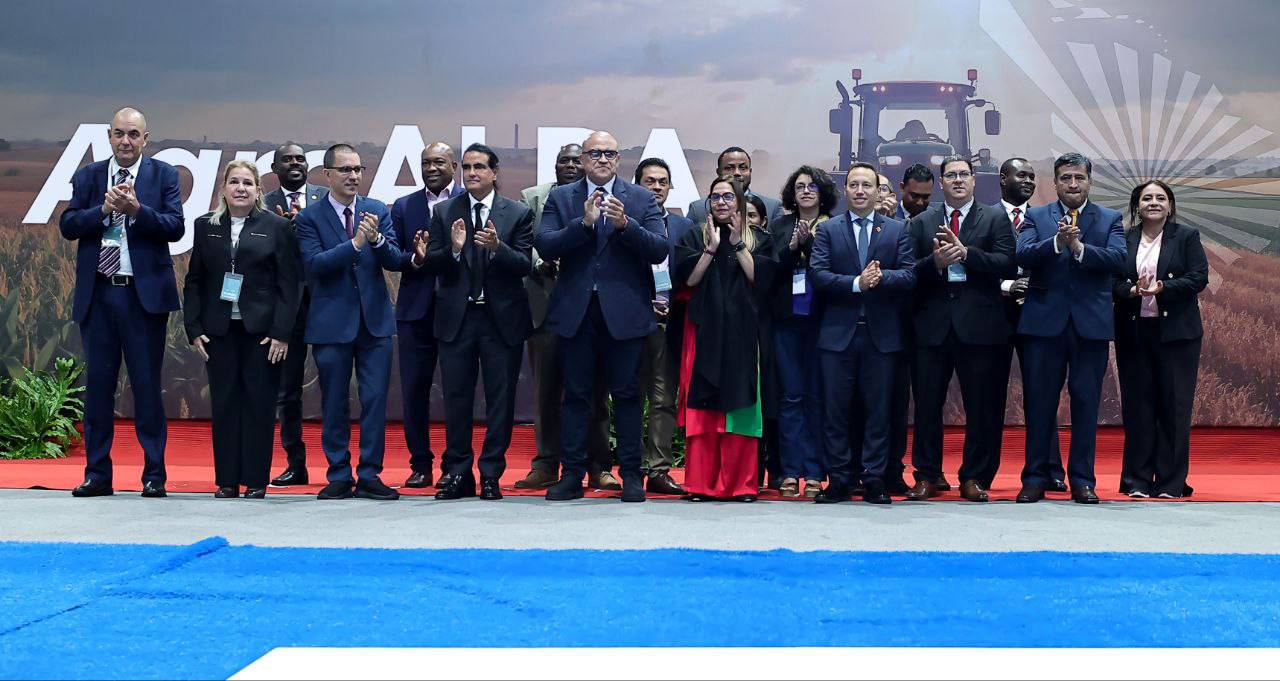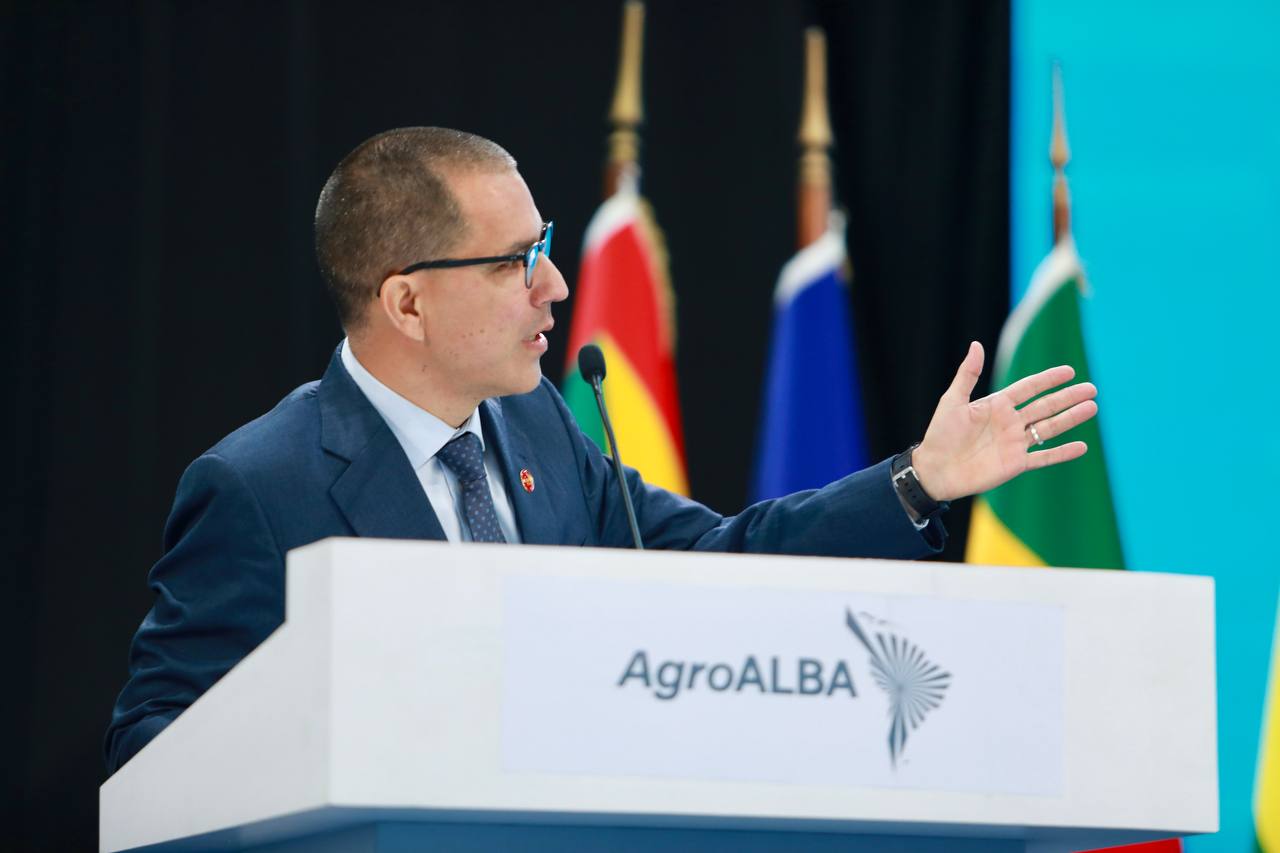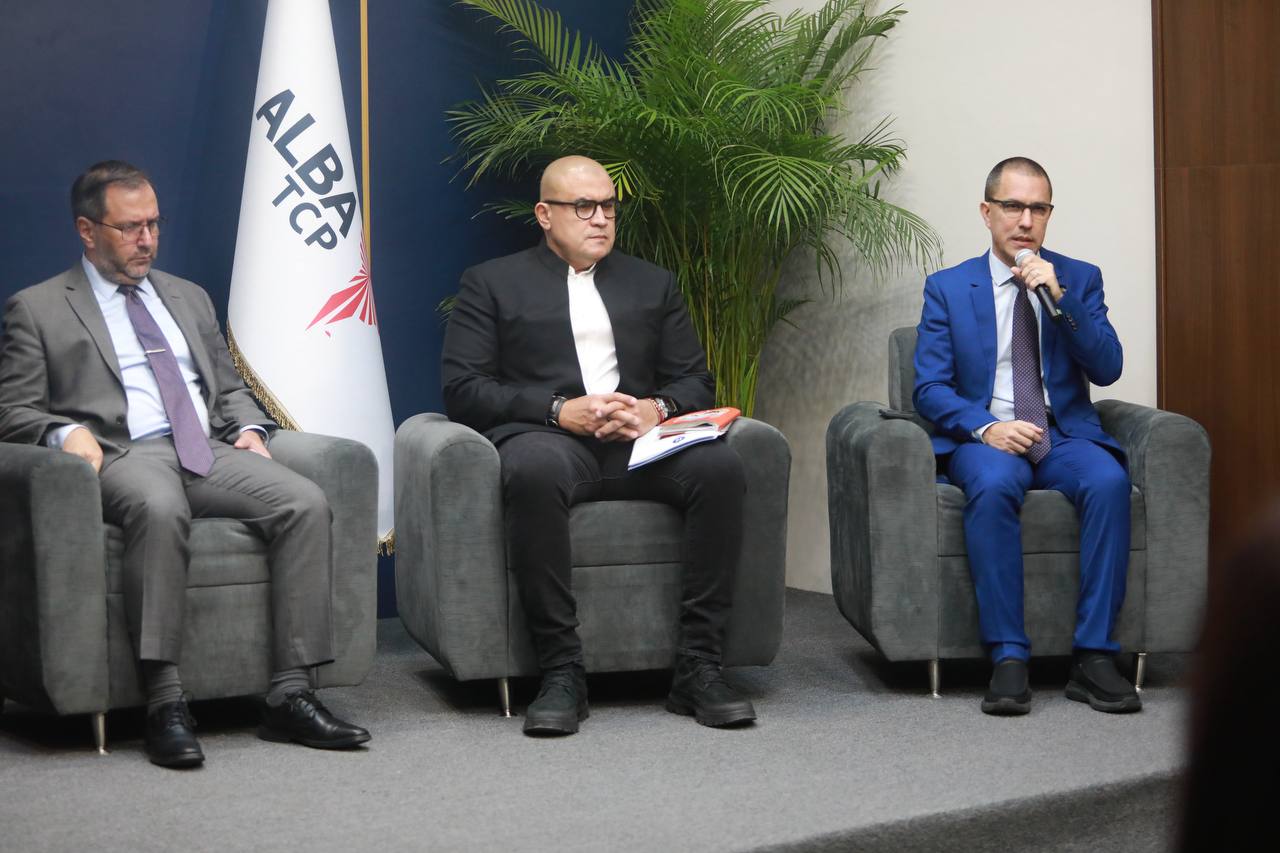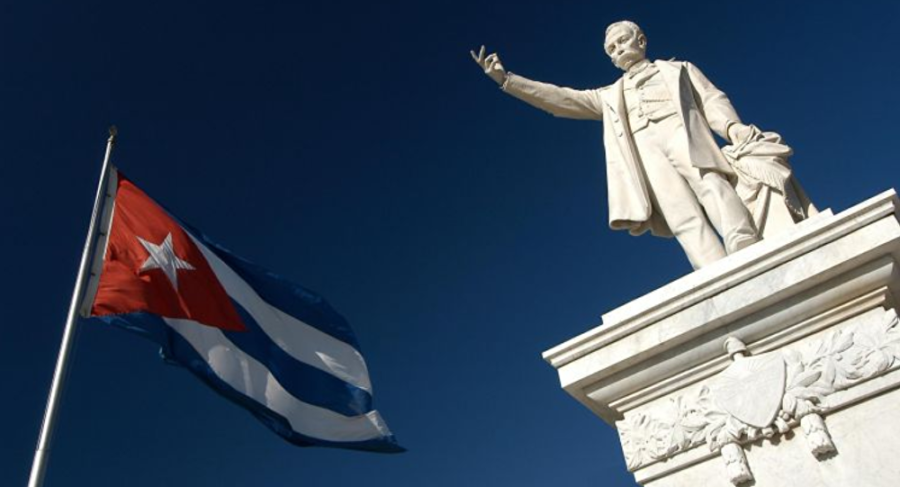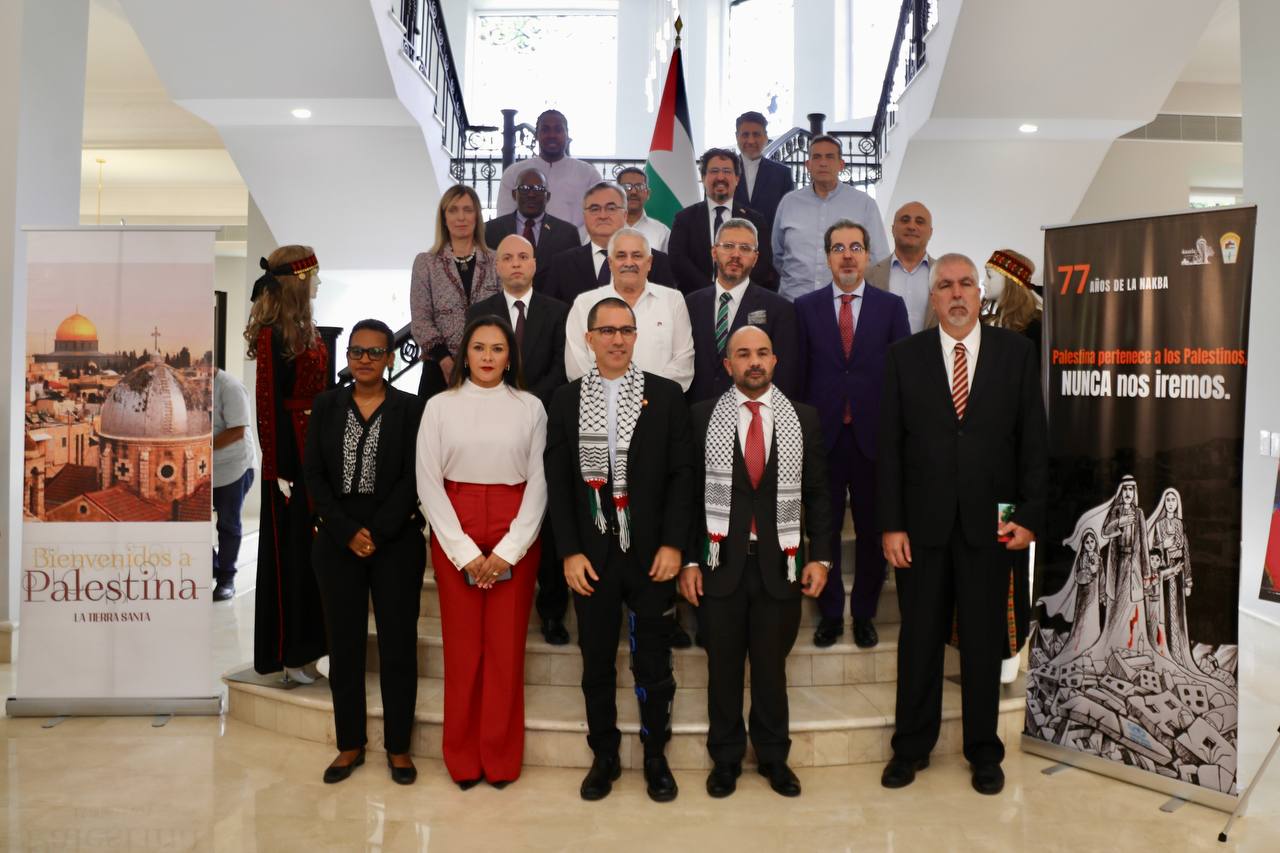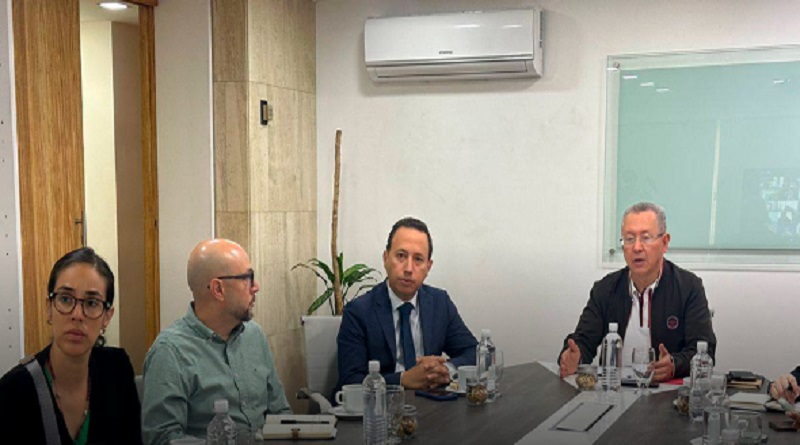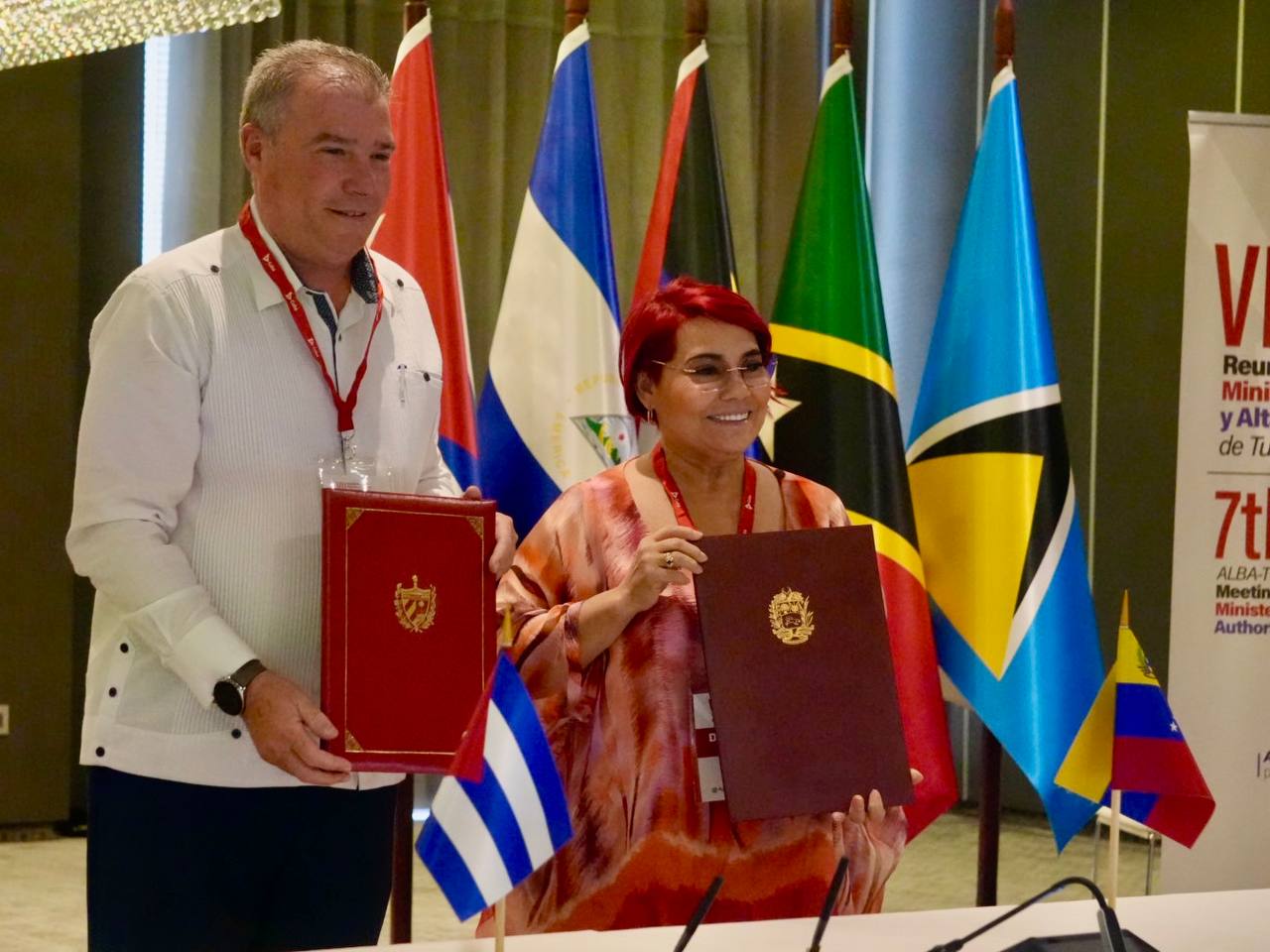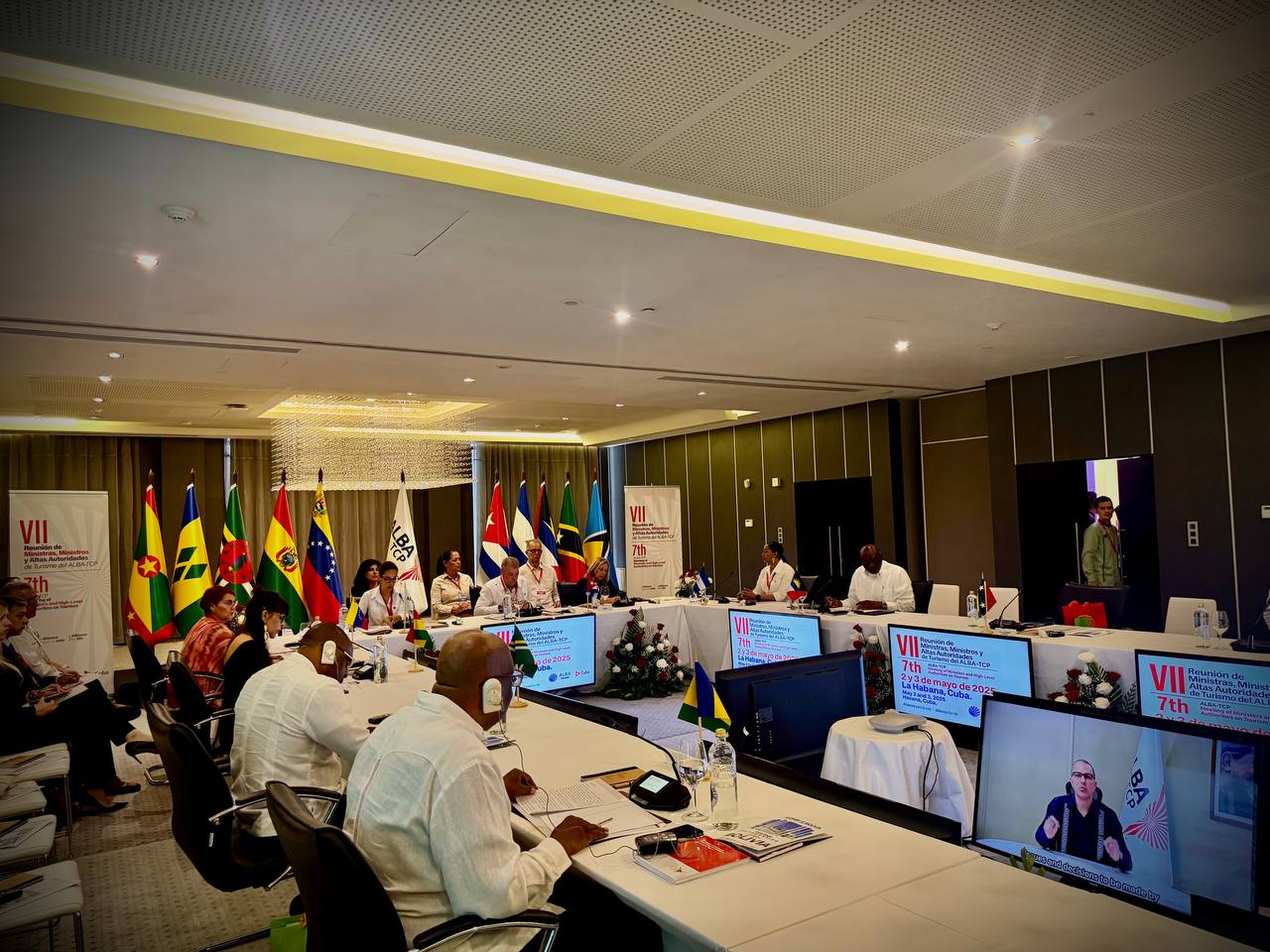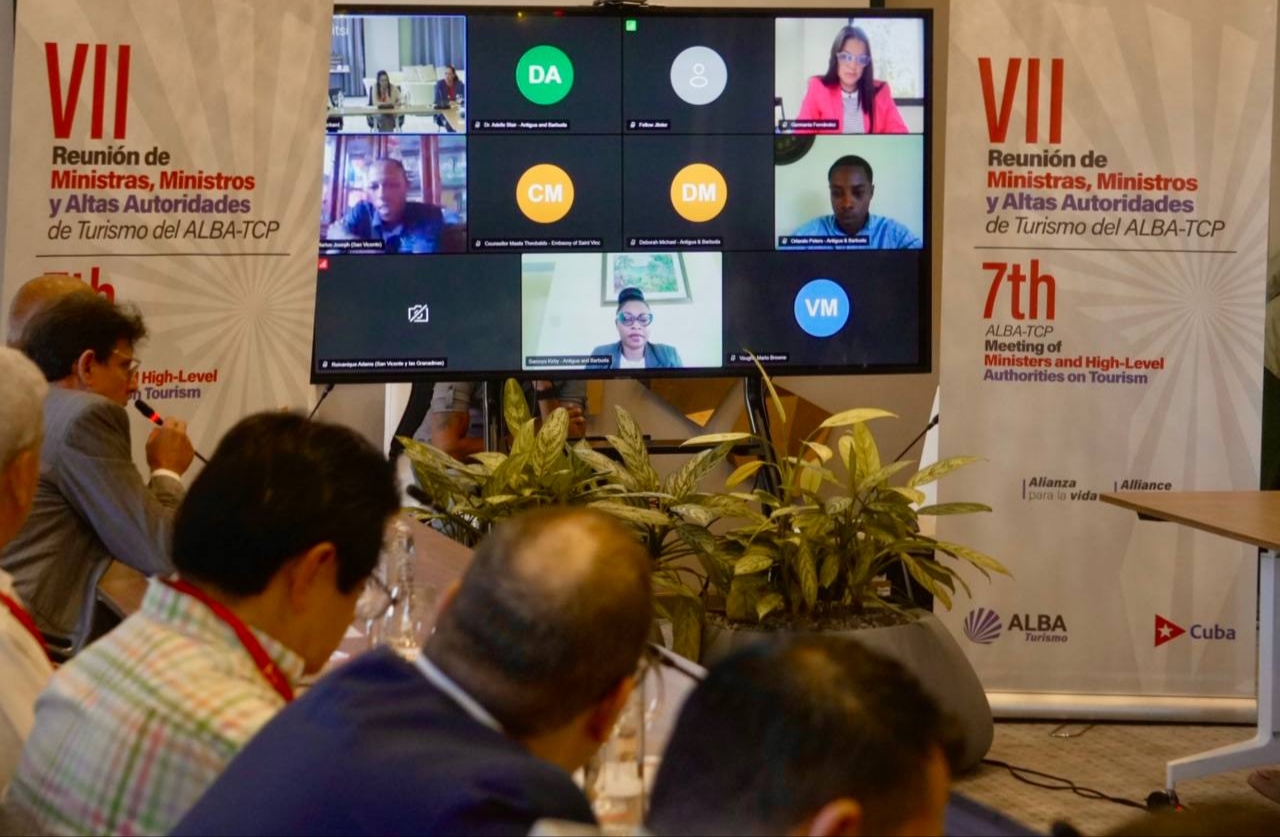Caracas, June 6, 2025 – This Friday, the First Joint Meeting of Ministers for Agriculture and Fisheries of the Bolivarian Alliance for the Peoples of Our America–Peoples’ Trade Treaty (ALBA-TCP) was held in the context of the Agroalba 2025 Expo-Fair, which took place in Caracas on June 5 and 6.
The Executive Secretary of the Alliance, Jorge Arreaza, warmly welcomed the attendees from the member countries of the regional bloc, who are working on strengthening the Agroalba program, an initiative promoted by the President of Venezuela, Nicolás Maduro.
The Minister for Fisheries and Aquaculture of Venezuela, Juan Carlos Loyo, stressed that the tariff war (imposed by the United States) has impacted food supply chains within the framework of hyperglobalization, “this means that friendly nations must work together to provide food for our people, to ensure security for our people, allowing us to form a strong alliance of friends capable of confronting the global reordering that is currently underway.”
He noted that through the ALBA Azul (Blue ALBA) proposal, Venezuela is offering land and maritime areas for food production, including livestock and seafood. In this regard, he proposed holding a future virtual meeting to address these issues with technical teams and to discuss the programs being developed in each country.
The Vice Minister for Agriculture and Land of Venezuela, Tibisay León, reported that the ministry is currently reviewing all land available in Venezuela for the Agroalba initiative. “Once we have bilateral meetings, we will be able to specify which lands are available for you to come and begin working here,” she stated.
Additionally, Cuba’s Minister for Agriculture, Ydael Pérez, affirmed that the blows of imperialism compel the region to work together to guarantee food for the people. “Agroalba offers special opportunities for Cuba, and we are grateful for this initiative. In Cuba, we aim to make progress in agricultural and food development for the region. We offer the willingness of Cuba and its farmers to demonstrate that a better world is possible,” he emphasized.
Saboto Caesar, Minister for Agriculture, Forestry, Fisheries, Rural Transformation, Industry, and Labour of Saint Vincent and the Grenadines, highlighted that Agroalba is essential to uniting productive efforts to ensure food security amid the challenges of climate change.
He stressed the importance of solidarity at this time. “We must understand the moment we are in—food will not always be available at a good price, and that is key. Today, we represent those who are not in this room, and we must be conscious of our duty to ensure nutritional and food security.”
The Minister for Agriculture, Fisheries and Marine Resources, Cooperatives, Entrepreneurship, and the Creative Economy of Saint Kitts and Nevis affirmed that Agroalba is an excellent opportunity to strengthen agricultural production in the region and called for improvements in transportation to reduce costs.
Representing Dominica, the Minister of State in the Ministry for Agriculture, Fisheries, Blue and Green Economy, with specific responsibilities for Fisheries and the Blue Economy, Jullan Defoe, stated that agriculture is the backbone of the Caribbean nation’s economy. He asserted that Agroalba must serve as a platform for food production investment and for strengthening the region’s brand. “For Agroalba to fulfill its objectives, we must work collectively,” he added.
Similarly, Midalys Naranjo, Vice Minister of the Food Industry of Cuba, emphasized that in the face of global challenges such as climate change and the food crisis, unity within the bloc must guide the proposals of Agroalba and ALBA Azul. She also noted: “Let us work together to face these challenges.”
From Grenada, Javon Williams, Permanent Secretary of the Ministry of Economic Development, Blue Economy, Planning, Agriculture and Lands, Forestry, Marine Affairs, and Cooperatives, confirmed his country’s participation in the Agroalba program.
Likewise, Randel Esnard, Deputy Permanent Secretary of Saint Lucia, stated that this meeting is a clear example of the solidarity and cooperation that define ALBA-TCP, and thus expressed his support for the Agroalba initiative. “We are here to strengthen agricultural and fisheries production, and we applaud the proposal to ensure food sovereignty,” he said.
According to Luz Adilia Luna, Vice-Rector of the National Agrarian University of Nicaragua, “ALBA member countries must move forward with sustainable food systems. For Nicaragua, it is essential to continue joining efforts to combat global hunger and ensure peace for our peoples.”
Ramiro Lizondo, Executive Director for Bolivia at the ALBA Bank, highlighted that import substitution has been a cornerstone of Bolivia’s economic development. In this regard, Bolivia supports Agroalba as a duty of governments to meet the basic needs of the most vulnerable populations. “Bolivia is aligned with the objectives of Agroalba, and we are pleased to work together to achieve them,” he added.
Meanwhile, Ika Fergus, Assistant Officer of the Ministry for Agriculture of Antigua and Barbuda, stated that within ALBA, “we have the tools to strengthen food sovereignty, promote sustainable agricultural practices, and ensure that our nations have access to nutritious food as a human right.”
Laura Suazo, Secretary of State for Aquaculture and Livestock of Honduras (an invited country of the Bolivarian Alliance), described the initiative as “spectacular.” “With Agroalba, you are telling us that when we work together, we are stronger,” she said, adding that it is a unique and innovative project.
The President of the ALBA Bank, Raúl Li Causi, affirmed that the institution fully embraces the challenge posed by Agroalba and ALBA Azul. “This is about jointly defending the food sovereignty of our peoples. We count on firm political will and on an integration that does not bow to colonial interests.”
Li Causi stated that the ALBA Bank is ready to finance structured projects that meet technical and environmental sustainability standards. He announced that letters of intent are already being signed with allied countries for active trust funds. Finally, he proposed the establishment of a permanent financial technical committee to accelerate the validation and financing processes.
